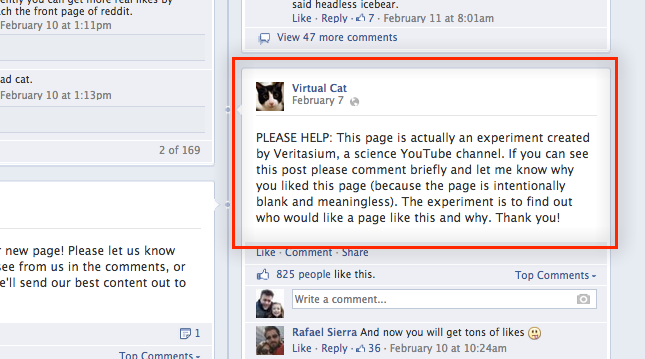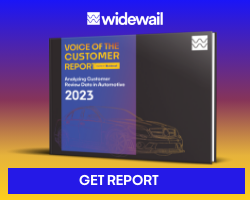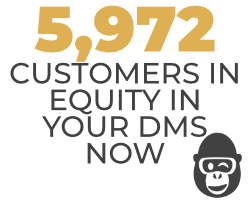[highlight color=”#F0F8FF” font=”black”]If you follow the “other” industry forums, there’s a good chance you’ve read one of Mr. Stephen Jackson’s many enthralling articles. I happen to intercept this one, and asked if we could exclusively host it here on DealerRefresh. I believe you’ll enjoy this article as it’s very relevant to the conversations we’ve had lately. Read this one all the way through. Think about how you’re advertising on Facebook (if you are) and use the comment section to share your opinions and findings as you stroke a check to Facebook for advertising. Enjoy! -Kershner[/highlight]
I ask, how many “likes” does your dealership facebook page have? More importantly, how did you get those likes?
Marketers value the ubiquitous Facebook Like for two main reasons:
- Your likes are a numerical way to represent your popularity. Every thumbs-up is a public display of brand loyalty and recognition. Marketers hope that an extended social media reach equates to brand advocacy among consumers – an ideal that has yet to be proven.
- Facebook Likes help your messages travel further. Here’s the way it’s supposed to work: as you gather likes, your fans see more of your content and this drives engagement. If you can build a bigger following, you have the chance to speak to a larger segment of your target audience.
At least, this is what we’re told. Facebook sold us on the value of likes-as-advertising back in 2012, right before it went public. The company was valued at $100 billion, but only because it showed the potential to exponentially increase ad revenues. As a result, Facebook opened it’s own ad exchange, allowing users to bid on ad space to promote their page on the social networking site.
We know lots of dealers who have employed Facebook campaigns over the past few years. We’ve talked to a few who have noticed that engagement wasn’t growing, and return was exceptionally poor. You might remember that these thoughts were echoed by GM almost two years ago, when the OEM decided to stop advertising with Facebook just a few days before the company went public. Many marketing pundits were shocked that the third-largest advertiser in the country was cutting its ads from the largest social network in the world.
But the owner of science video blog Veritasium has poked a few giant holes in the validity of Facebook’s business practices. In a video that was released on Monday, blogger Derek Muller examined some of the Facebook fans he’d acquired through the site’s ad platform.
Though he’d targeted the U.S. and U.K., he was getting a lot of fans from developing countries such as Egypt, Indonesia, and the Philippines. He was also getting a lot of attention from people in unlisted locations who seemed to like tons of things. Some of his new fans had liked over 300,000 pages, some with conflicting interests (for example, liking AT&T, Sprint, and Verizon).
It seems plausible that these users were born of “click farming,” a practice in which social media accounts are created and exploited by constantly “liking” as many things as possible. These users like your page, but will never interact with your brand or buy anything you’re selling. This results in a large following with zero value. These kind of fans are worse than useless.
The rabbit hole goes even deeper as Muller starts to investigate his engagement. After posting his ad, Muller’s page received an influx of these suspicious fans, but his engagement (the amount of users commenting or interacting with his posts) was lower than ever before. He realized that this was due to the way that Facebook’s ranking algorithm interacted with his newly-found fake friends.
See, when you post something to Facebook, it isn’t distributed immediately to your friends and followers. First the network tests the waters by evaluating the social worth of your content. Facebook releases your posts to a random sample of your fans and gauges its immediate reaction. If people start liking or commenting on the post, it is gradually shown to more and more users.
When you buy fake fans (those accounts created through click farming), your content is initially shown to some of them. Fake accounts have no chance of interacting with your brand, forming a relationship with you, or ultimately buying anything you’re advertising. Even worse, your posts consequently are shown to fewer of your real fans. In this way, Facebook makes money twice: once by helping you acquire “fans,” and then again when your content is restricted – forcing you to buy more.
Essentially, this means that advertising through Facebook actually causes your web presence to suffer – the opposite of its stated purpose.
At the end of his expose, Muller demonstrates how he created a blank page called Virtual Cat filled with “the worst, most annoying drivel you can imagine. Only an idiot would like this page.” It says so right in the description. Muller then paid $25 to Facebook for targeted ads in the U.S. Sure enough, the likes came rolling in – but the blogger was testing their authenticity by creating posts such as this one:

Despite Virtual Cat’s 300 new likes, this post was not engaged with once.
I do not mean to say that the social company was directly involved with using clickbots in order to deceive advertisers. Muller’s video postulates that these are the results of third parties who are actively trying to avoid detection by Facebook’s fraud algorithms. But removing these “fake” likes and fans would mean that the company would have to admit that Facebook has made hundreds of millions of dollars from providing completely useless fans.
Shortly after its release, this video caught fire. The experiment has been seen by almost a million people – and it’s only been a bit over 72 hours. Brands like Walmart and Target are now acutely aware that they have thrown fortunes away on followers that don’t exist, and they aren’t happy.
The invisible hand of the market is now clenched in anger, and pointed directly at one of the most popular sites on the Web.
Questions:
Have you or your dealership tried advertising on Facebook for more likes?
What results are you seeing from your ads?
Whats your game place for using Facebook ads into 2014?








